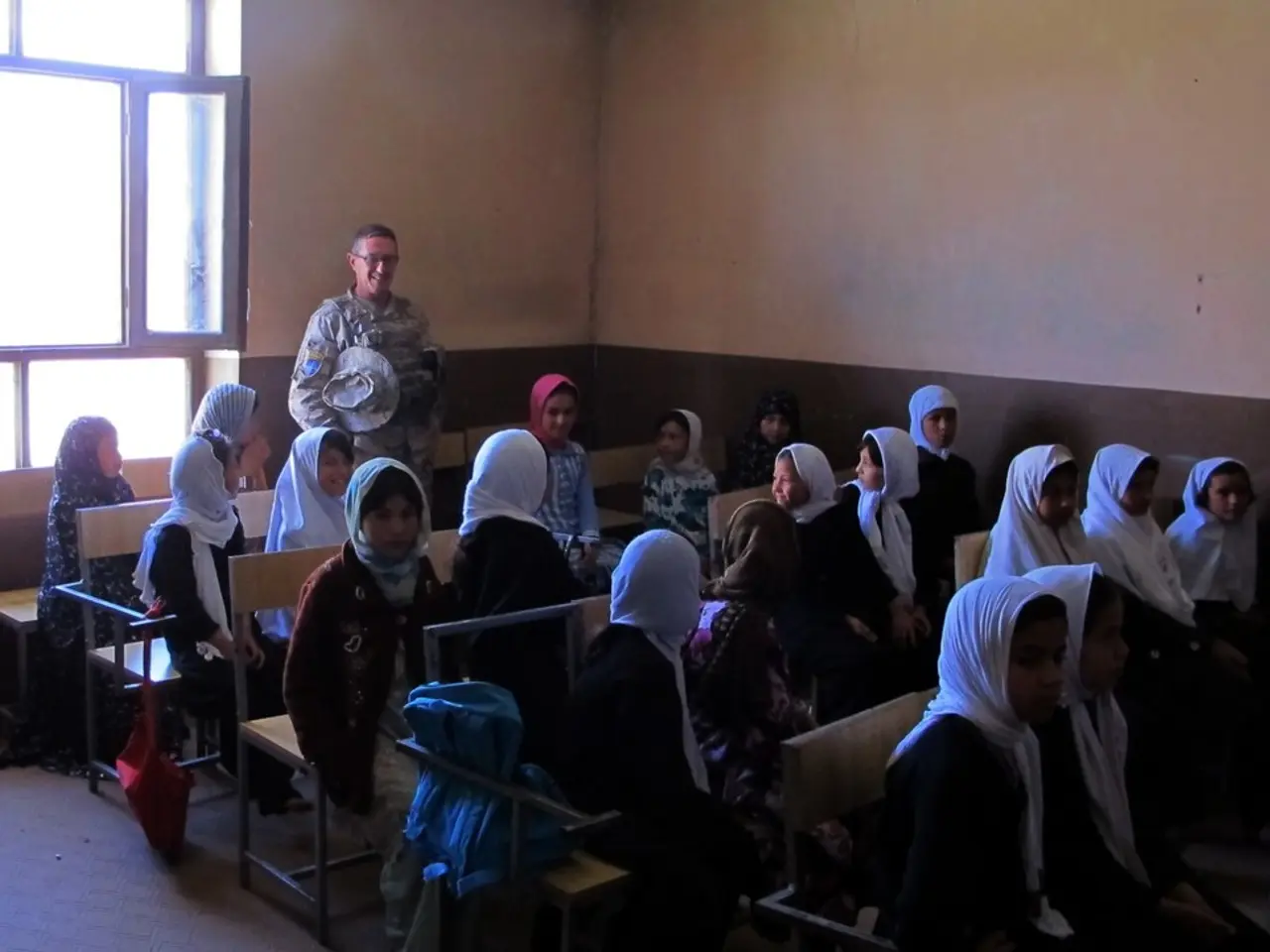Limited availability of comprehensive education programs in secondary schools, with just 13% of institutions providing inclusive learning experiences.
In the German state of Baden-Württemberg, the landscape of inclusive education in gymnasiums has been a topic of concern. Katrin Steinhübl-Joos, a former principal of a comprehensive school with inclusive offerings, described the current state as "unacceptable."
A recent parliamentary question from the SPD parliamentary group revealed that only slightly more than one in ten Baden-Württemberg gymnasiums offers inclusive education. Over the past ten years, this proportion has decreased significantly to 13 percent.
One of the main challenges facing gymnasiums is the differentiation of needs. As traditional academic elite secondary schools, they struggle to adapt classroom practices to accommodate students with diverse learning needs, including disabilities and learning difficulties.
Resource constraints are another hurdle. There is often a lack of sufficient trained special education teachers and support staff in gymnasiums, limiting the effectiveness of inclusion. Moreover, many gymnasium teachers have limited preparation for inclusive pedagogy, creating a gap in adapting teaching methods and assessments.
Attitudinal barriers also play a role. Some educators and parents associate gymnasiums with high academic standards, leading to reluctance or resistance towards full inclusion of students with special educational needs. Furthermore, older school buildings often lack physical accessibility features necessary for students with mobility impairments.
However, solutions are being implemented to address these challenges. Increasing in-service training programs are equipping gymnasium teachers with skills in differentiated instruction and inclusive teaching strategies. Co-teaching models, where special education teachers work alongside regular teachers in classrooms, provide tailored support. Individualized Education Plans (IEPs) are being developed to ensure students requiring additional support can participate fully.
Multi-stakeholder collaboration, including teachers, school psychologists, social workers, and parents, is being encouraged to create supportive learning environments. Infrastructure improvements, such as renovating school buildings to be more accessible, are also being made.
Baden-Württemberg's education ministry is promoting inclusive education policies that encourage integration across all school types, including gymnasiums. The need for catch-up is particularly great at gymnasiums, but comprehensive schools, primary schools, Werkrealschulen, and Realschulen have shown progress in increasing inclusive offerings over the past ten years.
Despite these efforts, the lack of special educators at general education schools is a contributing factor to the stagnation of inclusive education. The UN Convention on the Rights of Persons with Disabilities demands genuine participation and good support, and it is crucial that Baden-Württemberg continues to work towards creating more inclusive educational environments for all students.
Management and education-and-self-development initiatives are vital for addressing the challenges in implementing inclusive education in Baden-Württemberg's gymnasiums. To enhance personal growth and learning opportunities, it's essential to focus on equipping teachers with skills in differentiated instruction and inclusive pedagogy, creating supportive learning environments, and encouraging multi-stakeholder collaboration.




